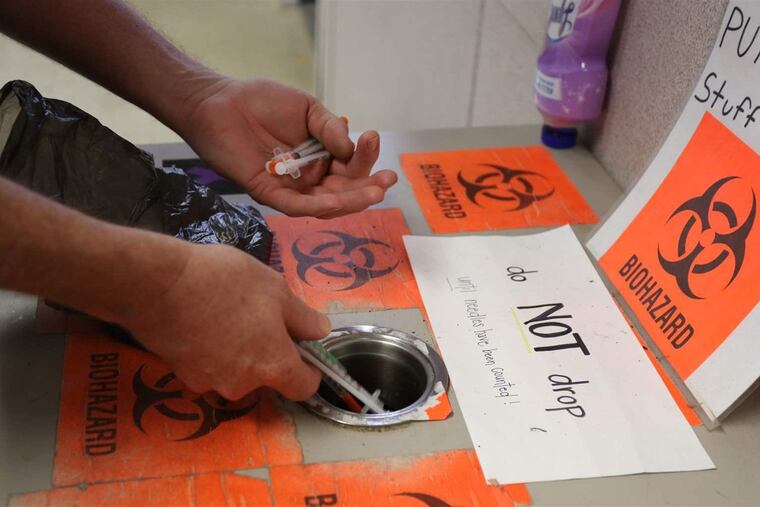Pa. can save lives with an easy policy change: Legalize syringe exchange state-wide now | Editorial
Pennsylvania's drug paraphernalia law makes it unlawful to distribute syringes. Programs like Prevention Point's are permitted through local approval.

The American Rescue Plan Act, the $1.9 trillion relief package enacted earlier in March, was historic due to its size, amount of direct assistance, and proximity to universality of the benefits. But there is a less discussed historic provision in it: as part of a $4 billion commitment to address the overdose crisis, makes a significant investment of $30 million “to support community-based overdose prevention programs, syringe services programs, and other harm reduction services.”
The money comes at a crucial time, with overdose deaths reaching historic highs across the country. Many areas in Pennsylvania, despite dire need, will not be able to apply for grants to fully utilize the money because syringe services programs, sometimes called syringe exchanges, a proven harm reduction intervention, are prohibited under Pennsylvania law.
One of the harms associated with injection drug use is HIV, because a shared syringe can transmit disease from one person to another. Syringe services programs help reduce this harm by increasing access to sterile syringes for those who are injecting drugs. In recent years, Pennsylvania has been experiencing an increase in the rate of people diagnosed with HIV due to injection drug use.
Syringe programs have a big impact on these rates. A 2019 George Washington University study estimated that Philadelphia’s syringe services program, Prevention Point, prevented more than 10,000 HIV diagnoses in 10 years, saving lives and millions of dollars in healthcare costs.
The problem is that the state’s drug paraphernalia law makes it unlawful to distribute syringes. Philadelphia and Pittsburgh have programs permitted under local approval. There are other, not formally authorized syringe exchanges throughout the state. But the need is much greater.
Between 2017 and 2018, the number of HIV diagnoses that were attributed to injection drug use in Pennsylvania increased from 77 to 105. Last December, the Pennsylvania Department of Health released the 2019 HIV surveillance report and the number of HIV diagnoses related to injection drug use hasn’t budged. Also concerning, the percent of concurrent diagnoses of HIV and AIDS remains high at 22%, signaling a failure of testing and early detection — a function that many of these programs do, and do well.
In 2015, when Indiana had an HIV outbreak, it was a new syringe services program that turned the tide. In 2018, West Virginia shut down a syringe services program and now the area is experiencing an HIV outbreak. Pennsylvania could easily be next.
Syringe services programs have the support of the Center for Disease Control and American Medical Association.
Last March, just before the pandemic hit Pennsylvania, Senators Anthony Hardy Williams, Democrat from Philadelphia, and Patrick Browne, Republican from Lehigh, circulated a co-sponsorship memorandum stating their intent to introduce a bill to end the prohibition on the distribution of syringes. Due to the pandemic, the bill was never introduced. Williams’ office says he plans to introduce the bill. The time to do that is now.
Coronavirus was a tough lesson in the importance of prevention. By finally giving syringe services programs explicit approval in the law, Pennsylvania will join more than half of U.S. states — and lawmakers will show that they’ve learned from the current public health crisis.